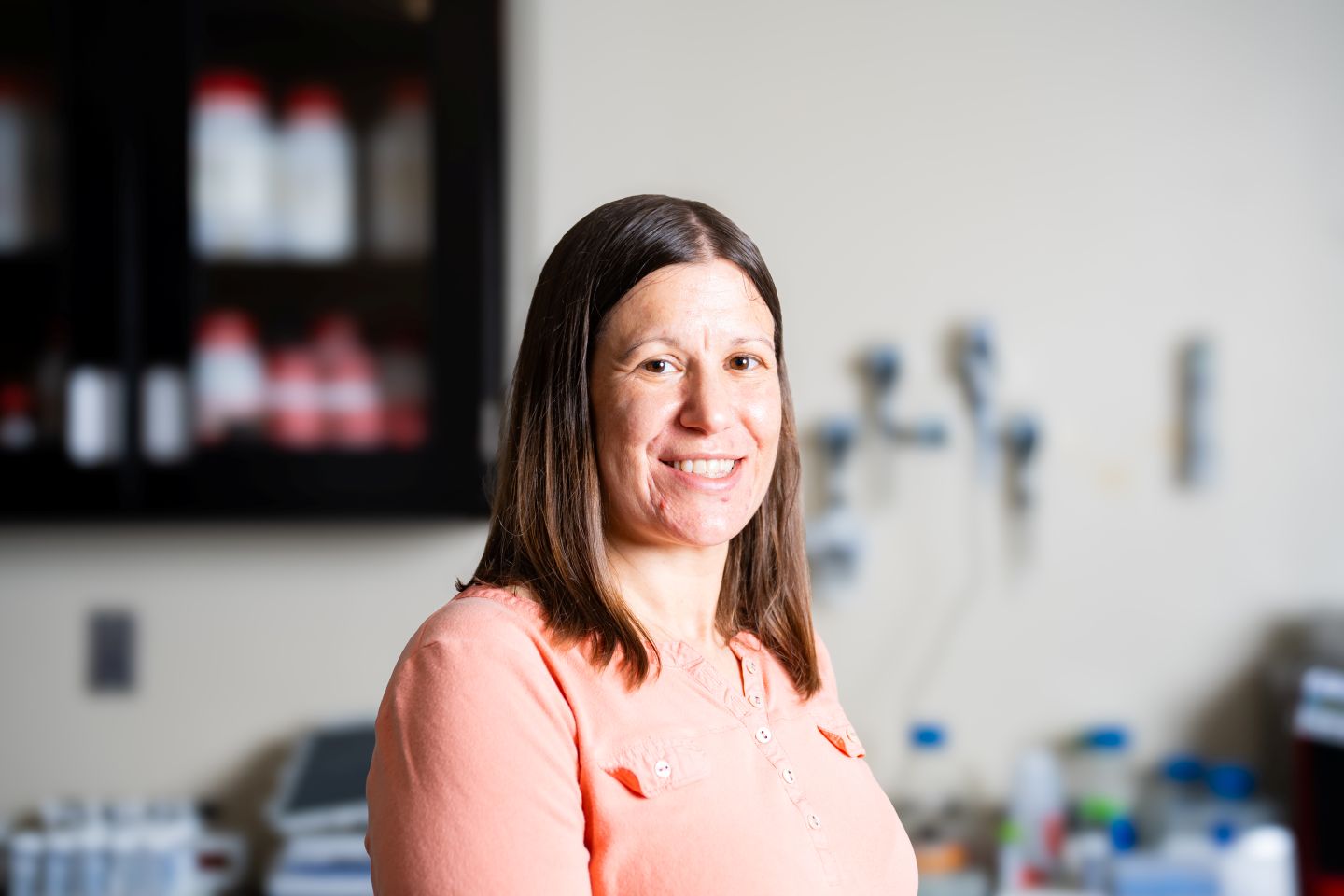Celebrating faculty: Tamara Stawicki

What is the focus of your research/area of expertise?
I study the sensory hair cells deep inside our ears that we use for hearing and balance. These are not traditional ‘hairs’ but rather sensory cells with small hair-like projections, known as stereocilia, coming off them that allow them to sense movement of said hairs. I use zebrafish to study this as in addition to having hair cells in their ear like mammals do, they also have hair cells along the length of their body as part of their lateral line system, which detects water motion. The surface location of these cells allows me to visualize hair cells in a living intact organism, something not feasible with mammals. Zebrafish are also a great model to use when interested in genetics as a single fish can lay a hundred or so eggs, and five days after fertilization zebrafish larvae already have mature functioning hair cells. One of the main areas of research in my lab is looking at how hair cells are impacted by certain genetic mutations. I also investigate hair cell death in response to environmental toxins and hair cell regeneration. Mammals cannot regenerate hair cells, which is why individuals generally tend to see a decline in hearing and balance as they age due to cumulative hair cell loss. However, zebrafish regenerate their hair cells quite robustly allowing us to investigate the different signaling pathways and genes important for this process.
How do students benefit from your scholarship and research?
For all students, regardless of what they go on to do, participating in research is great for developing critical thinking and analysis skills as they are regularly having to think about what their data is telling them. For students interested in careers doing scientific research, having experience as an undergraduate is critical. A number of my students have gone on to Ph.D. programs after graduating or taken technician jobs before applying to either Ph.D. programs or medical school, and having existing research experience is really important for those positions. Eleven of my students have been co-authors on peer-reviewed publications I’ve published from the lab.
What will you be teaching in the fall?
I’ll be teaching a First-Year Seminar, “Designer Genes, and Neuroregeneration.” In the FYS we discuss modern gene editing techniques as well as the long history of trying to control genetics. Neuroregeneration is an upper-level neuroscience elective where students read and discuss primary scientific literature from studies investigating the regeneration of neuronal tissues.